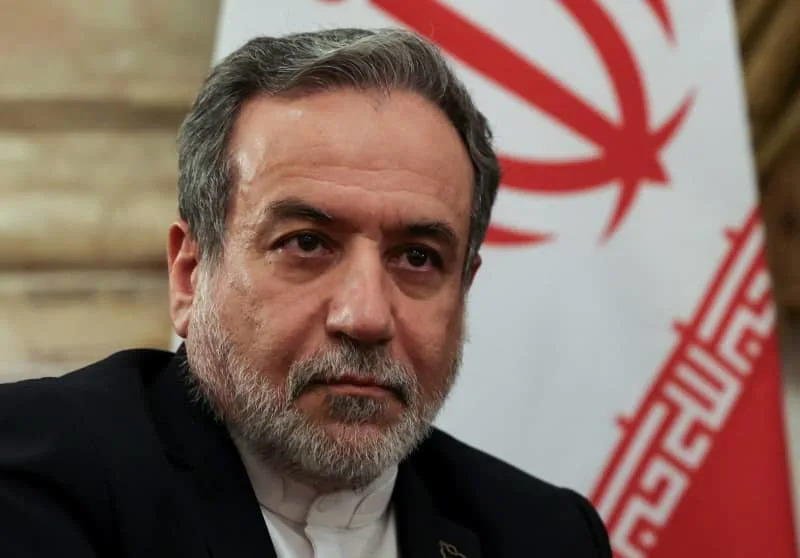World
Iran Expands Influence in Iraq and Lebanon Amid Anti-West Rhetoric

Iran is actively strengthening its relationships with allies in both Iraq and Lebanon while vocally criticizing the United States and Israel for what it describes as coercive diplomatic tactics. As part of this strategy, Iran’s leadership seeks to consolidate its remaining alliances and create a clear divide between itself and Western powers.
During a recent conference on international law held in Tehran, Iranian Foreign Minister Abbas Araghchi and the Political Advisor to the Lebanese Parliament Speaker, Ali Hassan Khalil, discussed key bilateral and regional issues. The event attracted around 350 participants, including diplomatic delegations and experts from countries such as France, Italy, Greece, and the United Kingdom. According to Iranian state media, the discussions aimed to address the perceived assault on international law, which Iran attributes to actions taken by the US, Israel, and other Western nations.
One major theme at the conference was “International Law Under Siege: From a rules-based order to an order based on rules.” The rhetoric included strong criticisms of the US and Israel, which were accused of undermining diplomatic efforts. Another significant topic was “Revisiting Regional Security Arrangements: Key elements and determining factors.”
In addition to regional discussions, Iran has called for an international response to the ongoing crisis in Sudan, where armed conflicts erupted on April 15, 2023, between the Sudanese army and the Rapid Support Forces (RSF). Iran reportedly supports the army’s position, placing it at odds with nations such as the United Arab Emirates that back the RSF. The conflict stems from disputes over the integration of the RSF into the national army following a coup in 2021, with international mediation efforts failing to resolve the violence.
Iran’s relations with Iraq remain robust, especially following the recent electoral success of Shia Prime Minister Shia al-Sudani. Iran has historically supported Shia militias in Iraq, and its leaders have expressed solidarity with the new government. The spokesperson for Iran’s leadership, Fatemeh Mohajerani, condemned Western diplomacy as coercive and signaled a warning against future attacks.
In an interview with Al-Mayadeen, a pro-Iranian news outlet, Mohajerani emphasized Iran’s rejection of one-sided diplomatic approaches and its commitment to self-defense. She discussed Iran’s missile program, asserting that the country felt compelled to enhance its missile capabilities in response to perceived threats, particularly from US-backed Israeli actions.
Moreover, she highlighted Iran’s ongoing cooperation with the International Atomic Energy Agency (IAEA), reaffirming that the nation remains committed to the Nuclear Non-Proliferation Treaty. Mohajerani noted that while Iran has not formally withdrawn from the treaty, it has suspended its implementation.
In addressing Iran’s broader strategy under extensive Western sanctions, she pointed to strengthened ties with China, describing the relationship as comprehensive and beneficial across various sectors. Trade volumes between the two nations have reportedly reached significant levels, spanning academic exchanges and joint projects.
Former Iranian Foreign Minister Javad Zarif also weighed in, arguing that peace in the region poses a threat to Israel. He questioned the timing of Israeli strikes on Iran, suggesting they were intended to disrupt ongoing negotiations with the US. Zarif asserted that Israel has crafted a misleading narrative to justify its policies, while he positioned Iran, along with China and Russia, as advocates for a multipolar global balance against US dominance.
As Iran continues to assert its influence in the region and denounce Western powers, its actions reflect a broader strategy of aligning with regional allies while fortifying its stance against perceived external pressures.
-

 Science2 weeks ago
Science2 weeks agoUniversity of Hawaiʻi Joins $25.6M AI Project to Monitor Disasters
-

 Business3 weeks ago
Business3 weeks agoForeign Inflows into Japan Stocks Surge to ¥1.34 Trillion
-

 Top Stories3 weeks ago
Top Stories3 weeks agoMarc Buoniconti’s Legacy: 40 Years Later, Lives Transformed
-

 Top Stories3 weeks ago
Top Stories3 weeks agoBOYNEXTDOOR’s Jaehyun Faces Backlash Amid BTS-TWICE Controversy
-

 Health3 weeks ago
Health3 weeks agoInnovative Surgery Restores Confidence for Breast Cancer Patients
-

 Sports1 month ago
Sports1 month agoSteve Kerr Supports Jonathan Kuminga After Ejection in Preseason Game
-

 Science1 month ago
Science1 month agoChicago’s Viral ‘Rat Hole’ Likely Created by Squirrel, Study Reveals
-

 Entertainment1 month ago
Entertainment1 month agoZoe Saldana Advocates for James Cameron’s Avatar Documentary
-

 Lifestyle1 month ago
Lifestyle1 month agoKelsea Ballerini Launches ‘Burn the Baggage’ Candle with Ranger Station
-

 Top Stories3 weeks ago
Top Stories3 weeks agoCarson Wentz Out for Season After Shoulder Surgery: Urgent Update
-

 Politics1 month ago
Politics1 month agoDallin H. Oaks Assumes Leadership of Latter-day Saints Church
-

 Lifestyle1 month ago
Lifestyle1 month agoDua Lipa Celebrates Passing GCSE Spanish During World Tour









